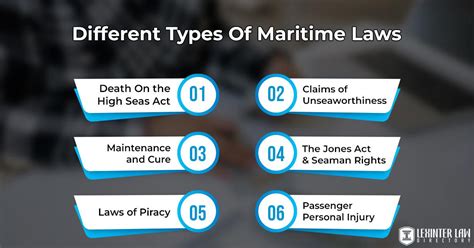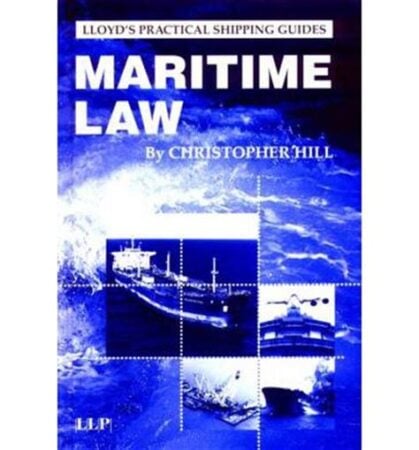
- Principles of Maritime Law: A Comprehensive Guide
- The Open Sea
- Territorial Waters
- Exclusive Economic Zone (EEZ)
- Continental Shelf
- Freedom of Navigation
- Safety of Navigation
- Protection of the Marine Environment
- Dispute Resolution
- Maritime Table
-
FAQ about Principles of Maritime Law
- What is maritime law?
- What are the main principles of maritime law?
- What is the difference between maritime law and admiralty law?
- What is the role of the United Nations Convention on the Law of the Sea (UNCLOS)?
- What are the major types of maritime disputes?
- How are maritime disputes resolved?
- What is the role of the courts in maritime law?
- What is the future of maritime law?
- What are some common misconceptions about maritime law?
- Where can I learn more about maritime law?
Principles of Maritime Law: A Comprehensive Guide

Introduction
Greetings, readers! Welcome to our in-depth exploration of the fundamental principles that govern the vast expanse of maritime activities. Our journey will dive into the nuances of maritime law, providing a comprehensive understanding of its complexities. Get ready to navigate the legal seas with confidence!
Historical Foundations of Maritime Law
The origins of maritime law can be traced back to ancient maritime civilizations, such as the Greeks and Romans. As sea trade and commerce flourished, the need for a legal framework to regulate maritime activities became apparent. The Rhodian Sea Law, dating back to the 3rd century BCE, is one of the earliest known codifications of maritime law. Over time, various maritime codes and treaties evolved, reflecting the changing needs of seafarers and merchants.
Territorial Jurisdiction in Maritime Law
The Open Sea
International law governs activities in the open sea, beyond the territorial waters of any nation. The principle of freedom of the seas allows all nations to navigate and fish in these waters, subject to certain restrictions.
Territorial Waters
Each nation has sovereign rights over its territorial waters, which typically extend up to 12 nautical miles from the coastline. Within territorial waters, the coastal state has jurisdiction over all maritime activities, including navigation, fishing, and resource exploitation.
Exclusive Economic Zone (EEZ)
The EEZ extends up to 200 nautical miles from the coastline. Coastal states have exclusive rights to manage and exploit the natural resources within their EEZ, but other nations enjoy the freedom of navigation and overflight.
Continental Shelf
The continental shelf refers to the underwater extension of a coastal state’s territory. States have sovereign rights over the natural resources of their continental shelf, but other nations maintain the right of innocent passage for navigation and fishing.
Key Principles of Maritime Law
Freedom of Navigation
Vessels of all nations have the right to navigate in the open sea and through territorial waters, provided they respect the laws and regulations of the coastal state.
Safety of Navigation
Maritime law places great emphasis on ensuring the safety of navigation. It requires vessels to comply with international safety standards, such as those set by the International Maritime Organization (IMO).
Protection of the Marine Environment
Maritime law recognizes the importance of protecting the fragile marine environment. It prohibits pollution and encourages sustainable fishing practices to preserve biodiversity and ecosystem health.
Dispute Resolution
Maritime law provides mechanisms for resolving disputes between vessels, seafarers, and coastal states. These include arbitration, litigation, and international tribunals such as the International Tribunal for the Law of the Sea (ITLOS).
Maritime Table
| Maritime Term | Definition |
|---|---|
| Admiralty Law | A branch of maritime law that deals with disputes arising from maritime activities |
| Bill of Lading | A document that acknowledges receipt of goods for shipment |
| Charterparty | A contract for the hire of a vessel |
| Collision | An incident where two vessels come into contact, resulting in damage |
| Demurrage | Charges incurred when a vessel is delayed in loading or unloading |
| Freight | The cost of transporting goods by sea |
| General Average | A contribution by all parties involved in a maritime adventure to cover expenses incurred for the benefit of all |
| Maritime Lien | A legal claim against a vessel or its cargo for unpaid debts |
| Salvage | Assistance provided to a vessel in distress |
| Wreck | A sunken or abandoned vessel |
Conclusion
Understanding the principles of maritime law is essential for anyone involved in maritime activities. This comprehensive guide has provided insights into the historical foundations, territorial jurisdiction, key principles, and dispute resolution mechanisms that shape the legal landscape of the maritime world.
For further exploration, we recommend checking out our other articles on specific aspects of maritime law, such as admiralty law, ship finance, and marine insurance. Stay tuned for more in-depth analysis and practical guidance on navigating the challenges and opportunities of the maritime industry.
FAQ about Principles of Maritime Law
What is maritime law?
Maritime law is a body of law that governs matters relating to the sea, shipping, and navigation. It includes laws that deal with the rights and liabilities of shipowners, shipmasters, seamen, and other parties involved in maritime commerce.
What are the main principles of maritime law?
The main principles of maritime law include:
- The freedom of the seas
- The right of innocent passage
- The right to self-defense
- The duty to assist vessels in distress
- The principle of general average
What is the difference between maritime law and admiralty law?
Maritime law and admiralty law are often used interchangeably, but there is a subtle difference between the two. Maritime law governs matters relating to the sea, while admiralty law governs matters relating to ships and shipping.
What is the role of the United Nations Convention on the Law of the Sea (UNCLOS)?
UNCLOS is an international treaty that establishes a legal framework for all aspects of ocean space, including the territorial sea, the exclusive economic zone, and the continental shelf. It also sets out rules for the conservation and management of marine resources.
What are the major types of maritime disputes?
The major types of maritime disputes include:
- Disputes between shipowners and shipmasters
- Disputes between shipmasters and seamen
- Disputes between shipowners and cargo owners
- Disputes between shipowners and insurers
- Disputes between governments over maritime boundaries
How are maritime disputes resolved?
Maritime disputes can be resolved through a variety of mechanisms, including:
- Negotiation
- Mediation
- Arbitration
- Litigation
What is the role of the courts in maritime law?
The courts play a vital role in maritime law by interpreting and enforcing maritime statutes and regulations. They also resolve maritime disputes and provide remedies for maritime torts.
What is the future of maritime law?
The future of maritime law is likely to be shaped by a number of factors, including:
- The growth of global trade
- The development of new technologies
- The impact of climate change
What are some common misconceptions about maritime law?
Some common misconceptions about maritime law include:
- That maritime law only applies to large vessels
- That maritime law is only concerned with commercial matters
- That maritime law is static and unchanging
Where can I learn more about maritime law?
There are a number of resources available to learn more about maritime law, including:
- Books and articles
- Online resources
- Maritime law courses




